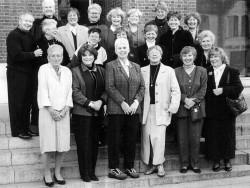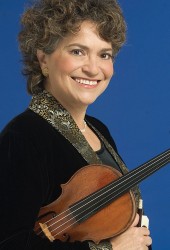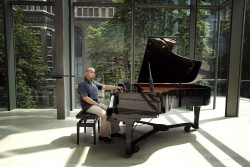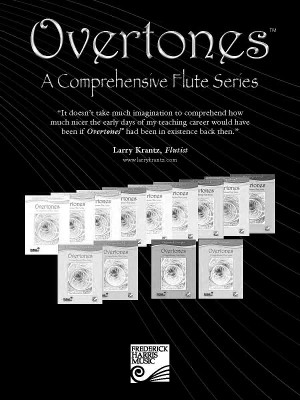Music Appreciation En Masse
Naturally we like to hear from readers who like what we are doing, but more importantly we like to hear from musically engaged readers who like what they are doing – especially when they have good ideas to share!
 A recent call, inquiring if The WholeNote might be able to provide circulation to a group in the Orillia area, was especially interesting in the wake of Ori Dagan’s December story about Marg Cameron and The Toronto Music Lovers. We are increasingly aware of the groundswell of people getting together for the particular pleasures of enjoying live performance in the diverse company of other music-loving companions.
A recent call, inquiring if The WholeNote might be able to provide circulation to a group in the Orillia area, was especially interesting in the wake of Ori Dagan’s December story about Marg Cameron and The Toronto Music Lovers. We are increasingly aware of the groundswell of people getting together for the particular pleasures of enjoying live performance in the diverse company of other music-loving companions.
Elsie Leskew’s call gave me the opportunity to chat with an interesting new reader, and she followed up our conversation with a letter.
…I have been involved in music my entire professional life, and only in the last year discovered your magazine through Albert Greer director (soon to retire) of the Cellar Singers here in the Orillia area. I was absolutely thrilled and amazed to find this gem, full of information about concerts, reviews, and so many articles about all aspects of music and musicians….
Pianist Elsie Leskew studied with Clifford Poole, Mona Bates, Reginald Godden in Hamilton and Toronto; and Edith Oppens in Aspen, Colorado and New York. As well as performing in recitals, she was also involved in chamber music. Eventually music education in the school system became a part of her life, and she studied at the Eastman School of Music in Rochester, graduating with a Masters degree in Music Education. She taught high school music in Bracebridge and was Music Consultant for the Muskoka Board for several years before retiring in1989.
I continue to be involved in music here in Orillia, with many friends who have been part of the Orillia Arts Group which I created, in a rather informal way in 1998. It was the result of my offering a “music appreciation” series of evenings to introduce classical music to a handful of non-musician friends...
Their desire to attend a concert in Toronto led them to a TSO Beethoven concert back in June of 1998, and the rest is history. Today Ms Leskew co-ordinates a list of over 90 names from Orillia, Barrie, Gravenhurst, and Bracebridge, and concert expeditions are a regular event. A concert is chosen and The Arts Group hires a small bus accommodating only 22 people each trip – first come first served – and there is usually a waiting list. They get together for an evening, share some wine and hor d’oeuvres, and Ms Leskew talks about the music they are going to hear. They listen to recordings. On the day of the concert they have their own driver, provided by Hammond’s Transportation in Bracebridge, who delivers them to their concert venue, and returns them safely home again at the end of a wonderful evening. Often they plan an art gallery visit or restaurant meal before the concert.
…For your interest and information I include a list of the performances we have attended in the last 12 years. Reading in your publication about all the events surrounding the GTA, I am sure we will expand our musical horizons and discover other delightful events…
The Orillia Arts Group’s list of concerts over the past 12 years includes concerts at Roy Thomson Hall, operas – first at the Hummingbird and later at the Four Season Centre, performances by the National Ballet, and most recently the September 2010 TSO concert with guest pianist Lang Lang. Where will these intrepid music lovers and their trusty bus venture next?
…Many are eager to hear some music in the magnificent new Koerner Hall. I think we may attend the Mozart Mass in C Minor, on May 11, but I’m going to listen to it again before we decide… My first experience of this wonderful music was singing in it, when I sang I attended The Aspen School of Music in Colorado one summer, as quite a young person. Walter Susskind was the conductor. It was the first time in my life I experienced that shiver that goes right down your spine…from music. I heard the Mozart Mass again years later at the Salzburg Festival and it thrilled me all over again.
The last part of my conversation with Ms Leskew was about the many opportunities to hear magnificent live music beyond the GTA, which previously her group might not have known about. These are becoming increasingly visible in the WholeNote’s listings and advertising. We agreed that getting sufficient copies of our magazine to the Orillia area was a really good place to start.






